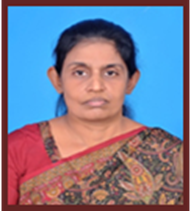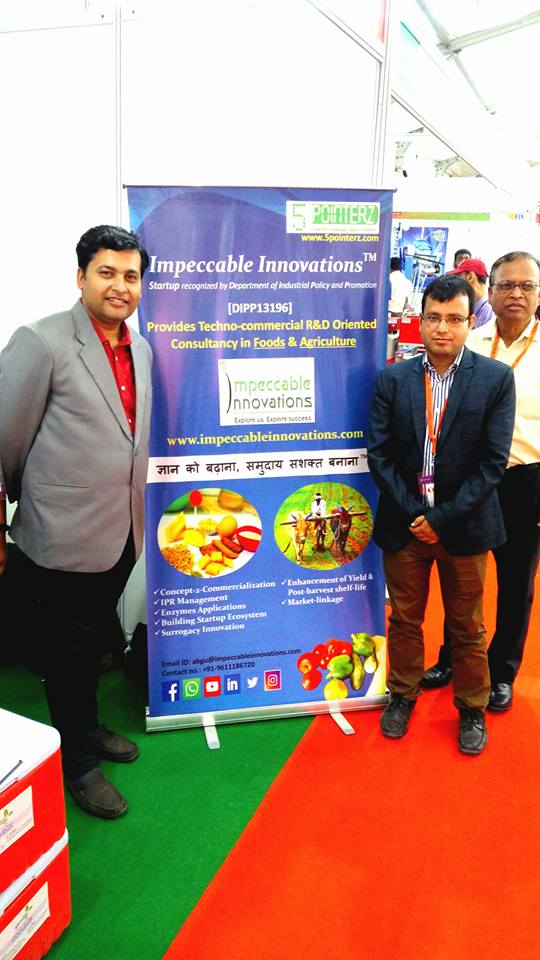Day 1 :
Keynote Forum
Jun Sun
University of Illinois at Chicago, USA
Keynote: Probiotic lactic acid bacteria inhibit inflammation and infection via autophagy pathways

Biography:
Jun Sun is a tenured Associate Professor at the University of Illinois at Chicago. She is an elected fellow of American Gastroenterological Associate. Her key achievements include 1) characterization of vitamin D receptor regulation of microbiome in intestinal homeostasis and inflammation, 2) identification of dysbiosis and intestinal dysfunction in ALS and 3) identification of Salmonella in regulating intestinal stem cells. She has published over 150 scientific articles in peer-reviewed journals, including Gut, Cell Stem Cells, Nature Genetics, JBC. She is in the editorial board of 10 scientific journals. Her research is supported by the NIH, DOD
and other awards.
Abstract:
Probiotics are beneficial bacteria with the power of supporting or favoring life on the host. Probiotics have been used in the treatment of various diseases, including inflammatory bowel disease, infectious diseases and cancer. However, the role of probiotics in the modulation of autophagy signaling pathways to effectively reduce inflammation and infection is unknown. Vitamin D is an important factor in regulating inflammation and immune responses via action of its receptor, vitamin D receptor (VDR). We have demonstrated that VDR status regulates the composition and functions of microbiota in the intestine. Low expression of VDR and dysfunction of vitamin D/VDR signaling leads to dysfunction in autophagic responses. In this presentation, we will discuss our recent progress in studying interactions among probiotics and vitamin D receptor in health and colitis. In vitro, we found that various probiotics lactic acid bacteria (LAB) strains and their conditional culture media
increased transcriptional levels of VDR and VDR target genes (e.g. cathelicidin, ATG16L1). Probiotic treatment could also increase the expression level of VDR protein. The enhanced expression of VDR is associated with increased autophagy proteins, such as LC3B and Beclin1. In vivo, LAB strains showed the capacity to increase the intestinal VDR and autophagy proteins LC3B and Beclin1. Furthermore, LAB conditional medium treatment prior to Salmonella infection dramatically increased VDR and ATG16L1 and inhibited inflammation. Understanding how probiotics enhance the VDR/autophagy signaling and inhibit inflammation will allow probiotics to be used effectively, resulting in innovative approaches to the prevention and treatment of chronic inflammation and infection.
Keynote Forum
Greg Maguire
BioRegenerative Sciences, Inc. and NeoGenesis, Inc.,USA
Keynote: The role of prebiotics, probiotics and postbiotics in skin and neurodegenerative diseases
Time : 10:00-10:45

Biography:
Maguire was former Professor of Neuroscience and Ophthalmology at the University of California, San Diego, faculty at the Bascom Palmer Eye Institute and Research Engineer at the University of California, Berkeley. He has been a Fulbright-Fogarty Fellow at the National Institutes of Health USA, has over 100 publications and numerous patents. His work is supported by the NIH and NSF. He is currently CEO of BioRegenerative Sciences and Chief Scientific Officer at NeoGenesis. He is author of the book, Stem Cell Released Molecules: A Paradigm Shift to Systems Therapeutics.
Abstract:
The microbiotas within us and on us have profound effects on human health, including many disease states of the skin and nervous system. In addition to the effects of prebiotics and probiotics, here we also discuss the importance to human health of postbiotics; here defined as those molecules released by microbiota that have positive health effects in the host. While we may speak of the binarity of the skin and gut microbiomes, one influences the other and therefore the two microbiomes are interconnected. As such, restoration of a healthy microbiome to prevent and treat various diseases or conditions should seek to optimize the microbiome at all sites, including those of the skin and gut. Data in humans and animal models now provide strong evidence that gut dysbiosis is an early onset mechanism in a number of neurodegenerative diseases, including Parkinson's disease and amyotrophic lateral sclerosis (ALS). Further, homeostatic renormalization of the dysbiosis can lead to a partial recovery of some symptoms in these diseases. Likewise in the skin, a number of diseases are associated with dysbiosis and can be successfully treated using a combination of prebiotics, probiotics and postbiotics. In the context of a “systems therapeutic” (Maguire, 2018; Nova Scientific Publishers), using a combination of therapeutics often results in better therapeutic outcomes than that when using only one therapeutic. Such an approach also includes using the combination of therapeutics at multiple sites, or targets. I shall discuss the prevention and treatment of a number of diseases, including ALS and acne using a
systems biology approach.
Keynote Forum
Vasantha Esther Rani
Fatima College, India
Keynote: Effect of functional foods (prebiotics) incorporated chikkis for HIV positive adults in Madurai district, Tamil Nadu, India
Time : 11:10-11:55

Biography:
Vasantha Esther Rani has 32 years of Research and Teaching experience. She is a Professor and Head, Research Center of Home Science with Food Biotechnology at Fatima College (Autonomous), Madurai, Tamil Nadu, India from 1999. She is the Coordinator of the UGC sponsored Innovative Program M.Sc Human Nutrition and Nutraceuticals. She is the Fellow of the International College of Nutrition from 1988. She has to her credit several research papers published in reputed journals. She has served as Principal Investigator in University Grants Commission sponsored Major Research Project. She enthusiastically involves herself as Regional Director/Convenor/Chapter President in the activities of Nutrition Society of India, Indian Dieteic Association, Home Science Association of India,Indian Association of Parenteral and Enteral Nutrition.She has authored a book ‘Developing a Software “Dia Diet @ Ease” on Diet Advice for Diabetics’published by Lambert Academic Publishing, Germany. She is the reviewer for the Journal Malaysia Journal of Public Health Medicine (MJPHM).
Abstract:
Acquired Immune Deficiency Syndrome or AIDS, is a disease of the immune system that makes the individual highly vulnerable to life threatening infections and diseases, such as tuberculosis (TB) and certain types of cancer. CD4 (cluster of differentiation 4) is a glycoprotein expressed on the surface of T helper cells, monocytes, macrophages and dendritic cells In humans, the CD4 protein is encoded by the CD4 gene. The CD4 count is used to assess the immune system of patients. When the CD4 count reach a level less than 200 cells per micro liter, an HIV positive individual is diagnosed as AIDS. Functional Foods, Nutraceuticals and HIV are linked. Any immune impairment as a result of HIV/AIDS can contribute to malnutrition leading to immune impairment. This worsens the effects of HIV and contributes to a more rapid progression of the disease. The study focuses on the organoleptic evaluation of formulated Prebiotics incorporated chikkis and the impact of supplementation among HIV infected subjects. Functional foods (Prebiotics) were incorporated in chikkis mixed with gingelly seeds and jaggery.
The raw materials were dried, powdered and mixed at various proportions like 20%, 30% and 40% along with rice bran and the proportions were standardized. Prebiotics incorporated Chikkis were evaluated based on organoleptic characteristics. The Chikkis were analysed for the nutrients (protein, fat, carbohydrates, energy, minerals) and Nutraceuticals contents (dietary fiber, phenols, beta carotene and ascorbic acid). Around 100 HIV positive adult patients in Madurai were selected based on the inclusion – exclusion criteria. Using Baseline investigation like CD4 count greater than > 250 cells/cu.mm and hemoglobin, patients were selected and categorized as control and experimental groups. The supplementation of two chikkis of 20 g each was carried out for period 180 days. The mean initial haemoglobin content of the selected subjects of experimental group was 9.4g.dl-1, placebo group was 8.94g.dl-1 and control group was 9.44g.dl-1. At the end of the supplementation of functional foods especially prebiotics incorporated chikkis, final mean of haemoglobin content of experimental group was 9.9, placebo group was 9.2 and control group was 9.72g.dl-1. There was a significant improvement in the haemoglobin content in the experimental group than the placebo and control group at five per cent level of significance. The mean initial CD4 count of the experimental group was 562, placebo group was 376 and control group was 453. At the end of the supplementation of prebiotics incorporated chikkies, mean final CD4 count of the experimental group was 759, placebo group was 399 and control group was 479. It could be concluded that there has been a significant improvement in the CD4 count in the experimental group than the placebo and control group at five per cent level of significance. Thus supplementation of prebiotics incorporated chikkis to the HIV adults of Madurai District had a significant impact on the haemoglobin levels and the CD4 count of selected HIV subjects.
Keynote Forum
Elias Hakalehto
Finnoflag Oy and University of Helsinki, Finland
Keynote: Probiotics in mitigating and eliminating the root causes of illnesses
Time : 11:55-12:40

Biography:
Elias Hakalehto, PhD, is a Microbiologist and Biotechnologist serving as the Adjunct Professor of the microbiological agroecology in the University of Helsinki, as well as the Adjunct Professor in the University of Eastern Finland for biotechnical microbe analytics. He is the CEO of Finnoflag Oy, established in 1993. He has conducted more than 100 R&D projects for different industries. He is also the Vice President of the International Society of Environmental Indicators, whose 22nd global conference he chaired in summer 2017. He has edited a book series on Microbiological Hygiene and authored about one hundred book chapters, besides numerous scientific papers and patents.
Abstract:
The definition of any microbiological disease usually corresponds to specific causative agents and symptoms. However, various statuses of the patient microbiome, associated with human health or disease, or various conditions in between, have been recently identified. In our laboratory, the microbiological stool samples have been screened against the patient sera in order to understand microbial attachment, penetration and intrusion into the body system. These immunogenic traits together with information on the overall composition of the host microflora, help in the diagnosis of specific diseases and in evaluating the risks for their onset. In some cases, beneficial microbial composition has been able to prevent serious diseases, such as as cancer or stroke. Imbalance of the microbiome may provoke e.g. lower back problems, headache and fatique. In numerous countries more than ten percent of the population suffers from the IBS (Irritable Bowel Syndrome). Inflammative gut diseases
make a huge toll by lost working days, stress-related illnesses etc. Some pathogenic conditions by e.g. Bacillus, Salmonella, Listeria strains and Staphylococci or Streptococci could be demonstrated by studying the intestinal isolates. Sometimes these strains cause hazardous infections elsewhere in the body system. To quantify the probiotic effect and for characterizing the balance, we have introduced the concept of BIB (Bacteriological Intestinal Balance). It can be determined by the Portable Microbe Enrichment Unit (PMEU). This balance could be influenced by pre- and probiotic treatments, which mitigate the syndromes and in the best cases eradicate the root causes of various illnesses.
- Probiotics in maintaining Health and Preventing Diseases| Agriculture Microbiology | Probiotics Products
Location: USA

Chair
Jun Sun
University of Illinois| USA

Co-Chair
Arthur C Ouwehand
Danisco| Finland
Session Introduction
Jong H Kim
Western Regional Research Center, USA
Title: Chemo-genetic approaches for improved antifungal intervention
Biography:
Jong H Kim is a Research Molecular Biologist in the Agricultural Research Service (ARS), US Department of Agriculture, Albany, California. His research focuses on the development of intervention strategies for the control of mycotoxigenic and phytopathogenic fungi. He provides chemo-biological expertise, particularly in the identification of cellular targets, mechanisms of action and compound interaction and participates in resistance management in collaboration with producers, industry and academia.
Abstract:
Treatment of fungal pathogens such as Aspergillus fumigatus or producers of toxic secondary metabolites, viz., mycotoxins, is increasingly problematic due to the limited number of effective drugs or fungicides available for fungal control. Moreover, the expansion of fungal resistance to commercial drugs or fungicides is a global public health issue. For example, certain azole fungicides that are applied to agricultural fields have the same antifungal mechanism of action as clinical azole drugs. Such long-term application of azole fungicides to farms could provide selection pressure for the emergence of pan-azole-resistant fungal pathogens. Therefore, there is persistent need to enhance the effectiveness of conventional antifungal agents or discover/develop new intervention strategies. Current industry estimation indicates that development of new agrochemicals from discovery to the first sale requires 159,574 compounds to be screened on average, where the time and costs for this new development exceed 11 years and $286 million, respectively. We developed chemo-genetic approaches for compound screening to expedite the identification of new, safe antifungal agents. Screening United States Food and Drug Administration (FDA)-classified generally recognized as safe compounds led to the identification of chemicals targeting fungal antioxidant or cell wall integrity systems, which effectively inhibit the growth of pathogens. They possess antifungal, anti-mycotoxigenic or chemosensitizing capability to enhance the efficacy of conventional antifungal agents. Therefore, our methods can reduce costs, abate resistance and alleviate negative side effects associated with current antifungal treatments.
Shrilakshmi Desiraju
Triphase Pharmaceuticals, India
Title: Thermo-stable probiotics products & method thereof

Biography:
Shrilakshmi Desiraju received her Doctorate in Natural Product Chemistry from Vikram University, Ujjain M.P. She continued her Post-PhD research venture in peptide synthesis in NCL Pune & IISc Bangalore. She published 35 research articles and business articles till date. She worked on Pfizer projects in Cardio vascular division at NAEJA Pharmaceutical. Inc. Edmonton, Canada as Sr. Scientist and later she pursued Master of Business Administration (MBA) in Technology Commercialization at University of Alberta, Canada. After her MBA, she started R&D based nutraceuticals company Triphase Pharmaceuticals Pvt. Ltd. in Mysore, India in 2009. Under her supervision Triphase filed its 1st Indian and US patents in process development for thermostable probiotics in 2015.
Abstract:
Development of foods with adequate doses of probiotics at the time of consumption is a challenge, because several factors during processing and storage affect the viability of probiotic organisms. The food and beverage market is still beset by issues of strain stability, low product shelf life and challenges in the development of probiotic application technology. Several attempts have been made during the last few decades to improve the viability of probiotics in different food products during their production until the time of consumption. Major emphasis has been given to protect the microorganisms with the help of encapsulation technique, by addition of different protectants and by alteration of processing and storage conditions. Triphase’s Thermostable Probiotic strains (L. acidophilus & L. plantarum) that have the ability to withstand harsh manufacturing process, especially required during making Food, Beverage, Bakery and Pharma industries. These innovative strains especially have been developed using a proprietary process to ensure delivery of claimed dosage levels of probiotic. These strains don’t require any encapsulation. The present disclosure relates to thermo-stable strain(s) of micro-organisms, obtaining such thermo-stable strains and incorporating them into food products. These strains are able to survive high temperatures for longer periods of time and thus food products containing such strains are therapeutically effective and beneficial for general health.
Arnab Guha
Impeccable Innovations Pvt. Ltd., India
Title: Idly dosa batter - Indian fermented food – local innovation with global perspective

Biography:
Arnab Guha has done B.A.Sc. in Food Technology from Bhaskaracharya College of Applied Sciences, Delhi University & M.Sc. Food Science & Technology from CCS Haryana Agricultural University, Hisar. He is the Director of IIPL, a startup which provides techno-commercial life-sciences consulting services to food industry & agriculture. He is principal inventor in 5 applied patents. Before starting his entrepreneurial journey in Feb-2016, he had worked in Heinz, Britannia & Novozymes for ~10 years in domains like R&D, Technology transfer & Production. Earlier, he had undergone training for brief stints in Nestle, Coca Cola, Unilever (Kwality Walls) & Heinz.
Abstract:
Diverse culture of India brings out the best in the diverse ethnic cuisine of healthy fermented foods like Idly, Dosa, Dahi, Gundruk, Sinki, Nan, Kulcha, Bhatura, Dhokla, Lassi, Chenna, Handva etc. Idli dosa batter preparation process includes five major steps – Soaking (of ingredients like rice, black gram, millets etc.), Decanting (excess water), Grinding, Natural Fermentation, Packing and Storage (at 4-8°C). The science behind various physico-chemical property of idly dosa batter viz. bulk density, percent volume rise, pH, titrable acidity & fermentation time etc, is quite delicate. Processed packaged food even with natural ingredients is not considered as a fresh and healthy product. Fermentation is known to improve nutrition, palatability and digestibility. It suppresses food borne pathogens. Rishta Idli Dosa Batter from India is marching ahead on all these aspects. Our challenge becomes multifold when we work in super-tasty low-shelf-life fresh food product segment like Nutritious Packaged Idli Dosa Batter which requires cold chain in tropical climate. Being an affordable staple south Indian food, it’s an ideal vehicle to alleviate rural and urban malnutrition as well has improves digestion and mental well-being.


